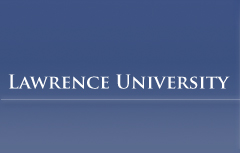Document Type
Honors Project
Publication Date
6-1-2016
Abstract
In my honors project, I analyze how Daniel Defoe’s first novel, Robinson Crusoe (1719), and his last, Roxana (1724), offer shifting economic commentary regarding England’s emerging 18th century credit economy. This shift does not come as too much of a surprise, as his first and last novel straddle the historic moment of the South Sea Bubble’s burst. Therefore, Defoe’s works, when analyzed sequentially, capture the evolving attitude towards value and credit that was occurring throughout all of England.
In my first chapter, “Crusoe’s Post Facto Journal Editing: ‘How wonderfully we are delivered when we are aware of it,’” I analyze Crusoe’s journal and assert that his entries must be recognized as more than just objective accounts of goods included to promote mercantilism: they also include the added element of Crusoe’s editing. I argue that in Robinson Crusoe, providence is necessary for economic success; we learn through Crusoe that providence will provide the tools, servants, and circumstances necessary for huge economic profits and wealth through faith in God and dedicated biblical study.
In Chapter 2, to historicize the economic changes that occurred between Defoe’s first and last novel, I bridge my Crusoe chapter and my Roxana chapter with an analysis of William Hogarth’s satirical print set: The Lottery and The South Sea Scheme (1721). Within my analysis, I first contextualize the historical period that leads up the South Sea Bubble and ends after its burst. Then, I look to Hogarth’s imaginative and satirical print set to point out his visual assertions that mark the historic change in understanding providence’s shifting role in the once moral, and then morally condemned, capitalist economic system. Hogarth shows us that during the period between these two novels, Lady Fortune has been debunked and good fortune is instead dictated by the Devil, who runs the machinery that underlies all capitalist endeavors and makes economics inherently dishonest, evil, and likely to end in ruin and moral decay. This thematic shift, in which providence is abandoned and unnatural reproduction rooted in demonic forces is the cause of economic markets’ trajectories, also can help us understand Defoe’s most enigmatic work- his last novel Roxana.
In my third chapter, I claim that while I agree with critics that Roxana works towards providing the reader with a moral education, I argue that this moral education is gained through the reader’s repeated exposure to, and understanding of, supporting characters’ repeated failed investment in Roxana; in other words, it is they, and not our heroine, who teach us our moral and economic lessons.
Interestingly, both of Defoe’s works have the complex aspect of “dual” narration, and I argue that narrative uncertainty can be directly equated with economic uncertainty. This shift, from our gaining moral and economic lessons through trusting and investing in Defoe’s dual Crusoe, to our accepting the narrative inconsistency of Roxana and learning through others’ failed investments in her, demonstrates the evolved and widespread new inherent distrust of capitalism post South Sea Bubble.
Level of Honors
magna cum laude
Department
English
Advisor
Celia Barnes
Recommended Citation
Swords, Terese J., "Daniel Defoe’s Literary Economies: The Shifting Role of Narrative Uncertainty, Speculation, and Providence in Robinson Crusoe and Roxana." (2016). Lawrence University Honors Projects. 98.
https://lux.lawrence.edu/luhp/98
Included in
Economic History Commons, Economic Theory Commons, English Language and Literature Commons, Finance Commons, Political Economy Commons
